AARP Hearing Center

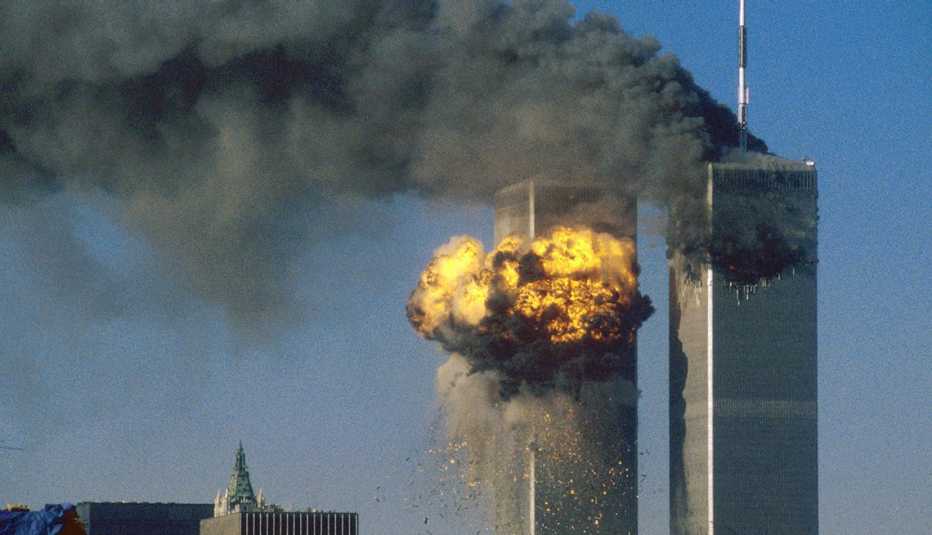
It's hard to fathom that teens now entering college — or serving in the armed forces — were not yet born on that unforgettable Tuesday morning. Nearly 3,000 people died in Manhattan, at the Pentagon and in a Pennsylvania field on September 11, 2001, in what remains the deadliest act of terrorism in history. To mark the 20th anniversary of that infamous day, we asked people with a connection to the attacks to reflect on what they experienced then and what it means to them today.
Bill Keegan, a lieutenant* in the Port Authority Police Department: The World Trade Center in lower Manhattan was a beacon to the whole world. It said, “We want to know who you are, we want to work with you, and we want to trade with you.” Trade allows us to understand different cultures and different people, and for them to understand us. I think that's why these terrorists targeted the towers.
8:46 A.M.
American Airlines Flight 11 from Boston, bound for Los Angeles, crashed into the World Trade Center's North Tower, between the 93rd and 99th floors.
Margaret Lazaros, a systems analyst for Empire Blue Cross Blue Shield, who worked on the 27th floor of the building: It was unbelievable. It's even hard to explain. It was such a noise and such an impact that you actually felt it. It felt like the building shuddered. I thought everything was going to fall down. We just all stood there, looking at each other, and I remember I said to my girlfriend, “Something bad happened. I think we need to get out of here."
Ada Rosario Dolch, principal of the Leadership and Public Service High School, three blocks south of the towers: I was in the school's lobby, greeting students. One of them says, “A plane hit the [World Trade Center] building.” I thought, Sure, a little Piper. She says, “A big one.” I say, “What do you mean, ‘a big one'?” She says, “It looks really bad, Mrs. Dolch."
Vincent Green, a top anti-corruption official in the city's Department of Investigation, who was in an office that faced the twin towers: We didn't think it was an attack at that point. We thought it was some pilot who didn't know what the heck he was doing.
Brenda Berkman, a lieutenant in the New York City Fire Department: I was off duty. I was at home in Brooklyn, having my second cup of coffee, when I got a phone call from Kentucky. It was my ex-partner's mother saying, “Turn on your television.” When I saw the North Tower burning, I immediately thought it was terrorism, because I knew, based on my experience, that that amount of fire could not have been set by a small plane or helicopter.
9:03 A.M.
United Airlines Flight 175, also headed from Boston to L.A., crashed into the World Trade Center's South Tower, between the 77th and 85th floors.


Investigator Green: I saw the second plane come around and go into the building. I told my colleague, “This is no accident. We're under attack."
Michael Lomonaco, chef and director of culinary operations at Windows on the World, a restaurant on the North Tower's 106th and 107th floors: I'd been in the shopping center on the lower level when the North Tower was hit. They evacuated us very quickly. I made a couple of calls to let people know I was safe. Then I heard a roar of jet engines. I looked up at the South Tower and saw the moment of impact. A fireball exploded. This was a tremendous shock. I thought of all my friends and colleagues at the restaurant, and I started to do a mental list: Who's up there now? Who's working? We had 72 of our Windows family working that morning. We also had more than 100 people in a private dining room. So, after the second plane hit, I became emotional and felt tears well up in my eyes.
Lolita Jackson, an assistant vice president for Morgan Stanley Investment Management's Mutual Fund Sales Department, who worked on the 70th floor of the South Tower: We were told to listen to our company's head of security, Rick Rescorla, and he told us to leave. It took about 35 minutes to get out of the building. I didn't know the towers got hit by planes, but standing there on the street, it looked like something from The Towering Inferno. It's hard to remember that 20 years ago there was no Twitter. There was no Facebook. There was no internet the way we know it now. So, we had no way of knowing what was going on unless somebody texted you. The Port Authority was telling people not to leave. The only reason we all lived is that Rick ignored what they were saying.
Salvatore Cassano, a Fire Department assistant chief of operations who became chief of operations right after September 11: The World Trade Center was built to withstand a plane crash. Well, it withstood the plane crash. It just didn't withstand a fire from the thousands of gallons of jet fuel that were incinerating everything in there.
Systems analyst Lazaros: We got into the stairwell, and it was so quiet.
Everybody knew something really bad had happened, and everybody just wanted to get out of there. We all just started walking and walking and walking down. We saw the firefighters, a lot of them. They started coming up the stairwell. So, we all moved over for them. They had so much equipment on them. And it was smoky, and they were sweating already. They were walking up the stairs. We asked them, “Where are you going? Where do you have to go?” They said, “Oh, we have to get underneath the fire. But you go.”
They had all these ropes and things, and all those guys never got out of there. Never.
We got to the end of the stairwell and went through the open door. At first we had no idea where we were. I said, “This must be some kind of old subbasement, somewhere that's full of debris.” It was the lobby we had come into in the morning, but everything had been destroyed.
Stanley Praimnath, an assistant vice president for Fuji Bank, who worked on the 81st floor of the South Tower: I'd seen huge chunks of fireballs falling from the North Tower. I took an elevator to the 78th floor of my building to switch to an express elevator, to leave. The security guard said, “Your building is safe, is secure. Go back to your office.” I stepped back into the elevator, went back into my office, and the phone was ringing, so I answered it. I'm standing up with a phone in my hand, and I see something gray, a plane, small at first, then larger and larger. I'm mesmerized, not realizing a plane is coming toward me. The plane starts to tilt, and it looks like time just stopped, and it's happening in flashes of a minuscule second. I can hear the revving sound of the engine, and the plane is coming closer, closer, closer. I dropped the phone and I screamed, and I dove under the desk. All I remember saying at that time was, “Lord, I can't do this. You take over."
The bottom wing took out most of the floor I was on. It looked like a demolition crew came and ripped the entire office apart. Every piece of furniture was mangled. The only desk that stood firm was the desk I was hiding under. My Bible was on top of that desk. That's the only reason I can attribute to why I was saved.
The ceiling above me collapsed, and the sprinkler system came on. I was screaming for somebody to help me: “Please don't leave me to die.” Somebody on the floor heard me, and the person had a flashlight.


Brian Clark, an executive vice president of Euro Brokers, who worked on the 84th floor and was one of his office's volunteer fire marshals: I got down to the 81st-floor landing and was confronted by a heavyset woman coming up the stairs with one of her coworkers. She said, “Stop. You can't go down. We have just come off a floor in flames.” She blocked us. And the people I was with, this chain of seven or eight coworkers behind me, all went bump, bump, bump. Now we're all standing on this rather tiny landing, and the debate began. Up or down?
About 30 seconds into this, I was distracted by a banging noise, a muffled cry. I dropped out of the debate and concentrated on what I was hearing. I made out this male voice calling for help. [Clark's Euro Brokers colleagues turned around and headed back up the stairs with the two people who had come from below.] I went in on the 81st. It was dark on this floor, no electricity and some black smoke. The stranger's voice was, I'm guessing, 20 yards away. My flashlight beam was like a high-beam headlight on a country road at night in the fog. You just saw the particles but nothing else.
The flashlight caught him and went down into his eyeballs. He said to me, “One thing I got to know. Do you know Jesus Christ?”
I said, “I go to church every Sunday. Come on, we've got work to do here. Let's move here."


Praimnath: I'm confronted by one lousy wall, a drywall that stood firm. The man with the flashlight said, “Climb over. I'll catch you on the other side.” At this point, I'm banged up, bruised, bloodied. He stood on a desk, reached over the top of the wall and grabbed me in a headlock. I squirmed and he pulled, and I flew over on the other side. I knocked him off his feet. When I realized where I was, I was lying on top of this guy. He got up. I don't know how to thank this man. I grab him, give him a kiss on the cheek.
Clark: I dusted myself off and put my hand up and said, “I'm Brian.” He said, “I'm Stanley. We'll be brothers for life.”
Praimnath: He said, “All my life, I've lived as an only child. I always wanted a brother."
Clark: At that instant, I noticed that I had punctured my right palm. He had a puncture wound on one of his palms, too. I smushed our hands together. And I said, “In fact, we'll be blood brothers."




































































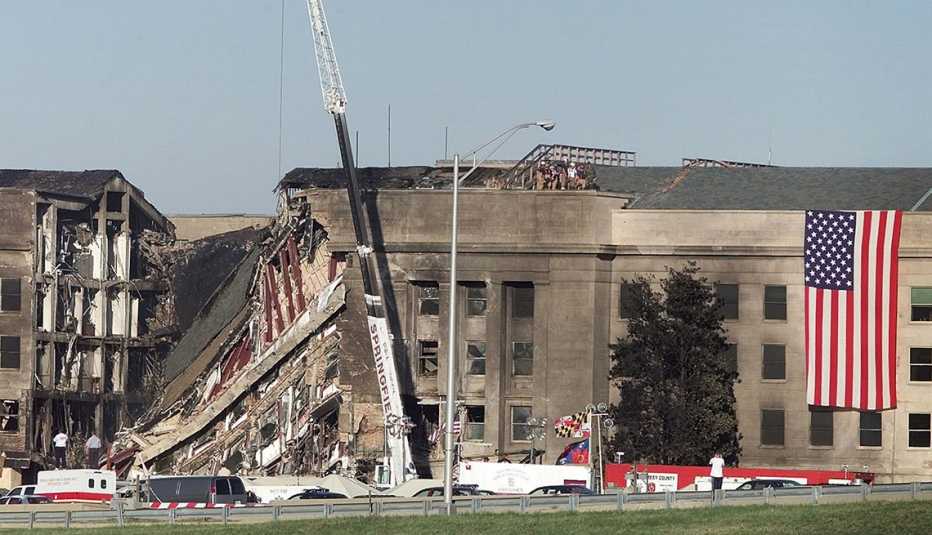
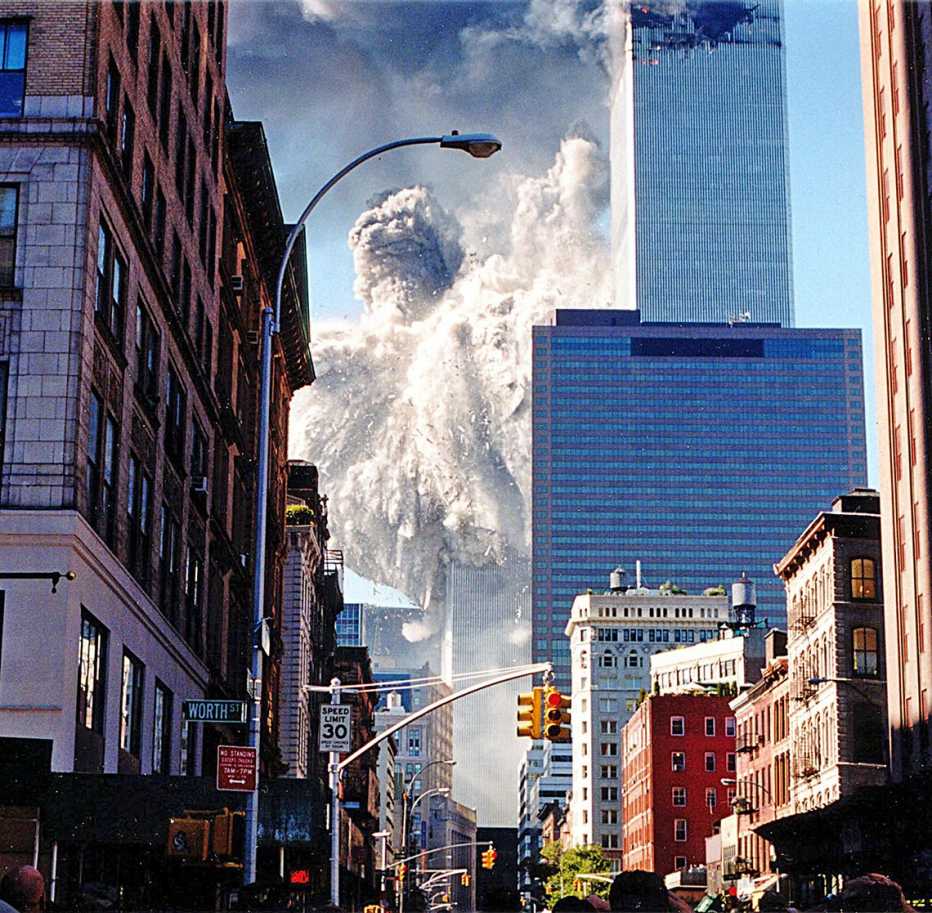



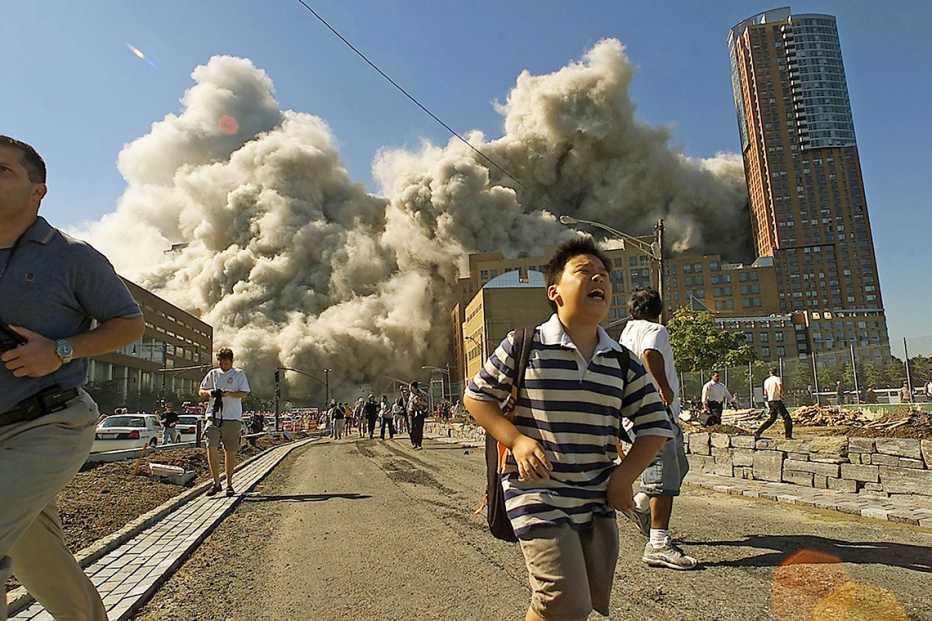

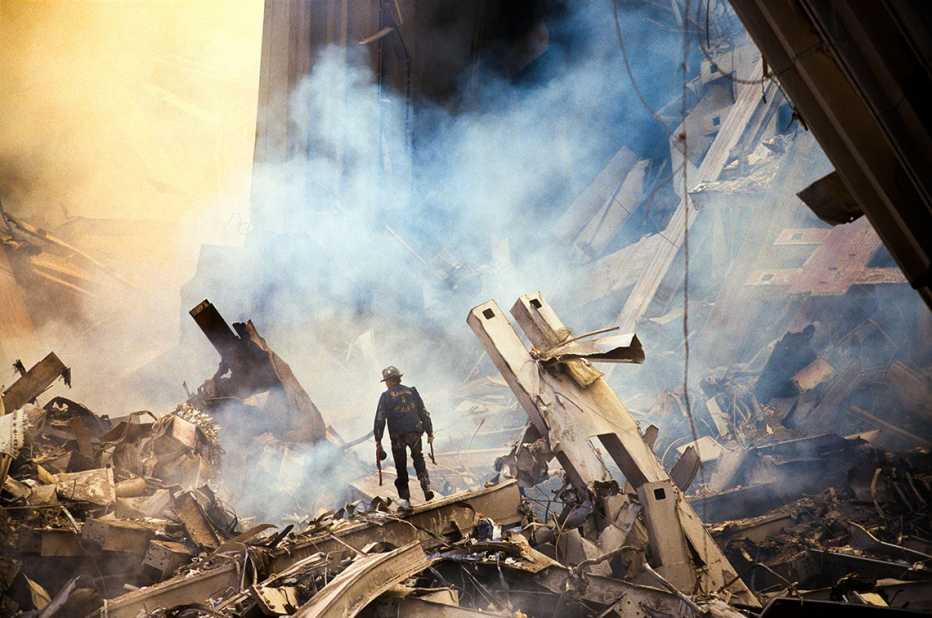

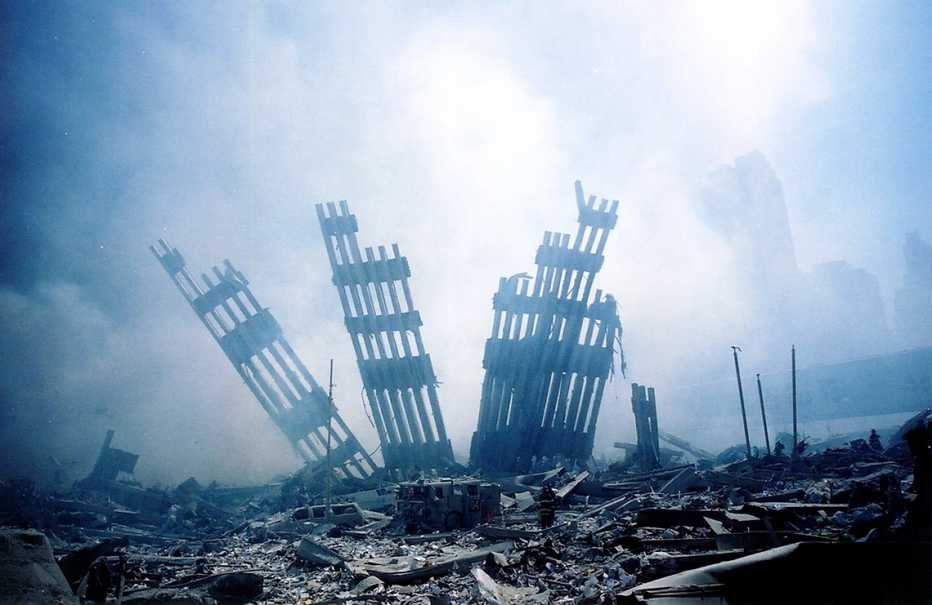
More From AARP
AARP Staffers Remember the Day That Changed Everything
Some watched the twin towers fall, others watched smoke rising from the Pentagon